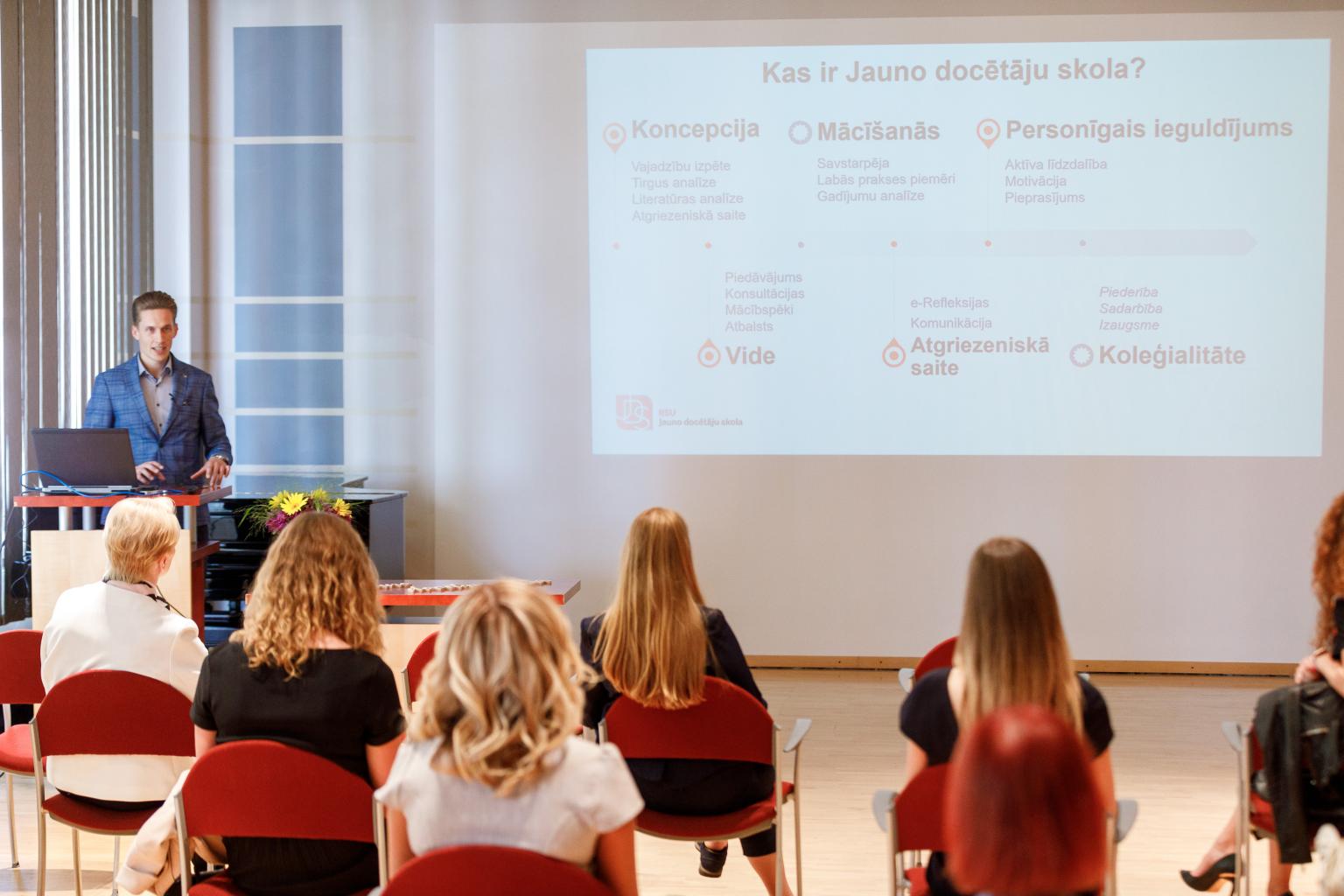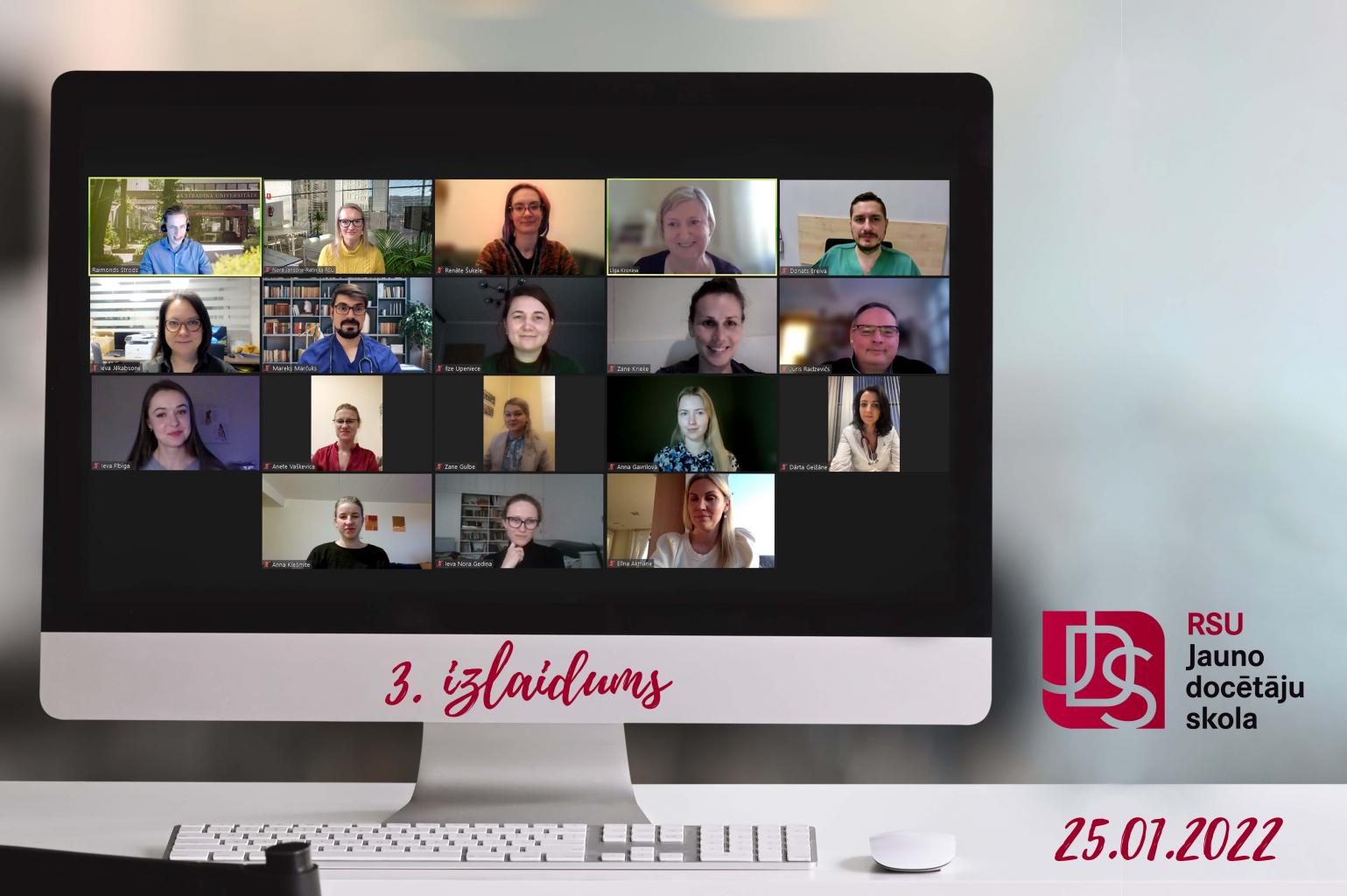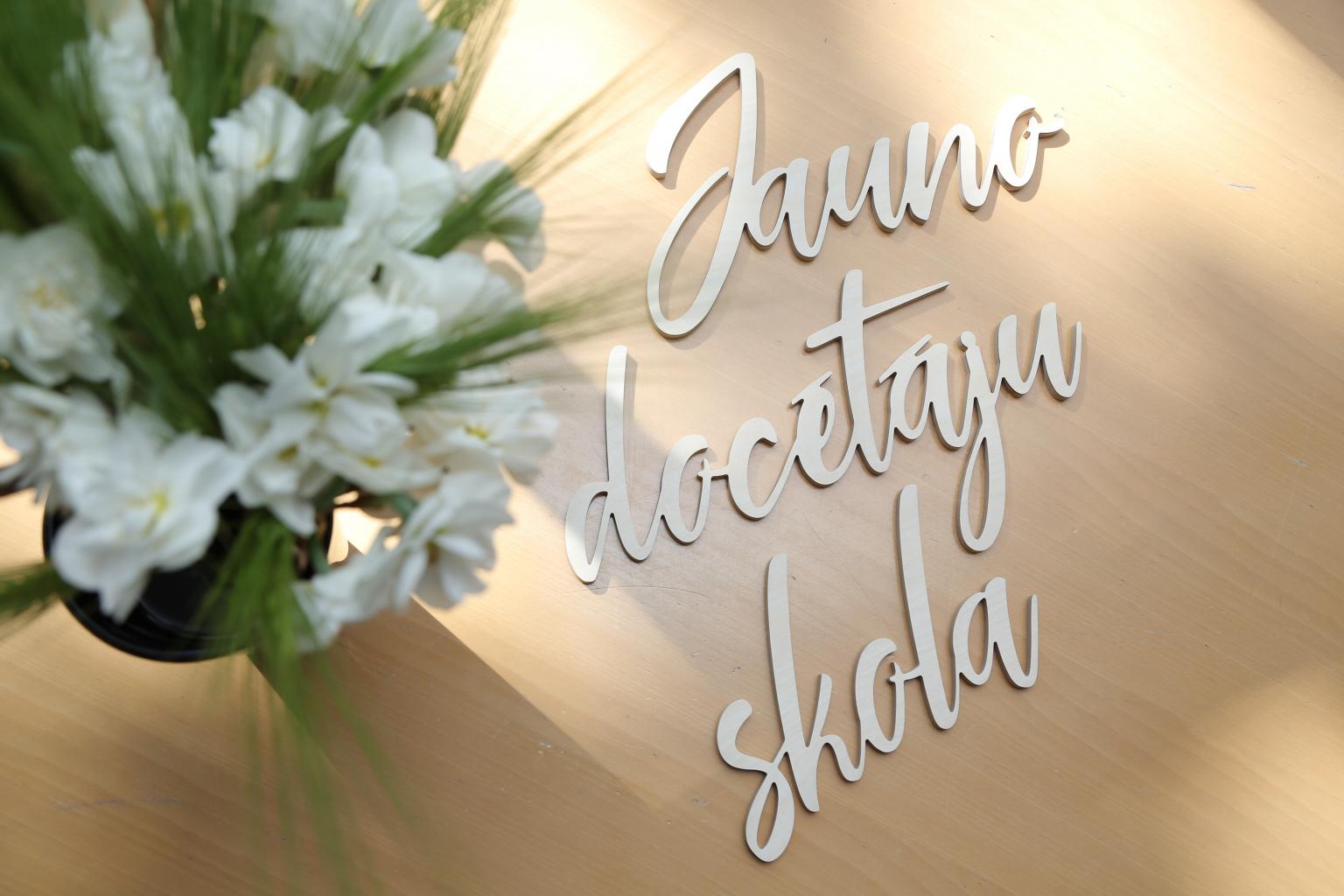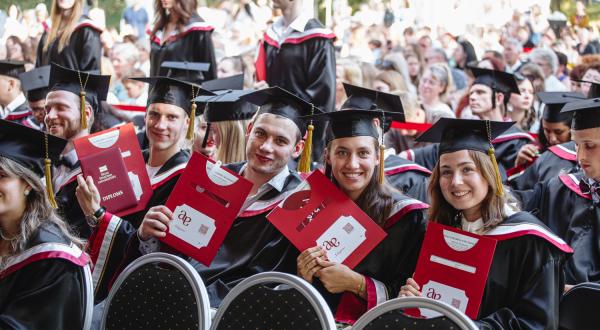Students Are the Winners when RSU Lecturers Participate in RSU School of Junior Academics
Their fields might range from pharmacy, biology, paediatrics, and neurology to art therapy and law, but they all share the ability to find time in their busy schedules to work on their pedagogical skills. After six months of extensive training, 25 academic staff members full of innovative ideas have just graduated from the Rīga Stradiņš University (RSU) School of Junior Academics – a unique platform in Latvian higher education for developing teaching skills.
The school was set up three years ago with national and European Social Fund (ESF) funding and is maintained by the RSU Centre for Educational Growth (CEG). Graduates admit that it is extremely rewarding to put on a student hat from time to time. We talked with both staff members and CEG experts about what they have learned and who will benefit from their new knowledge. CEG has just announced a call for applications for the fourth School of Junior Academics.

Emotional and Practical Support
‘Last year was difficult both physically and emotionally,’ says lung surgeon Donats Breiva, who, alongside his work at the Pauls Stradiņš Clinical University Hospital, is a lecturer at the RSU Department of Surgery.
‘I was probably not the best student at the School of Junior Academics because of the heavy workload, but it was an extremely valuable experience that forced me to step out of my comfort zone,’
said the doctor at the closing event, adding that he particularly enjoyed working in groups. During group work, it became clear that the teaching staff often faced similar problems in the classroom. These often quite therapeutic conversations made it easy to think of solutions to continue working with students. At the graduation event, the graduates emphasised that sometimes solutions weren’t even necessary, but the main thing was the ability to vent about everything that had happened during the pandemic.
Developing Skills Safely With the Help of Technology
The group of 25 academic staff members met once a week, both to strengthen the university’s pedagogical foundations and to learn new, specific competences and develop various innovations that will benefit the students. Topics covered student-centred education, modernising higher education, pedagogical communication, the potential that conflict has for building cooperation, academic integrity, leadership, research-based study process, and summative, cumulative, and formative assessment. The pandemic also made its way into the school’s curriculum, prompting a focus on both blended and hybrid teaching, as well as the use of digital simulations in work with students.
The curriculum of the School of Junior Academics is under constant development. Last time, the School brought together 31 academic staff members and two RSU students, but next time Mareks Marčuks, one of this year’s graduates, a paediatrician at the Children’s Clinical University Hospital and a simulation instructor at the RSU Medical Education Technology Centre, will contribute to the curriculum. Modern education is unimaginable without technology, and RSU has for years invested in world-class simulation equipment and in experts who utilise them to hone students’ skills in a safe environment. Therefore, under Marčuks’ guidance, the participants of the next School of Junior Academics will explore how to find and develop their individual lecturing approach and how to integrate a simulation-based learning approach into their study courses together, whether they are part of healthcare or social sciences study programmes.

Learning From One Another
Unlike the first group of the School of Junior Academics in 2019, who studied in person, and the second group a year later, who studied both in person and remotely, this year’s graduates finished the entire study process remotely.
‘In the past, I would have said that this format doesn’t work, but last year’s experience surprised me – our meetings were both interactive and very engaging,’
concludes project manager Raimonds Strods.

Both the Head of the School of Junior Academics and its participants note that they benefit from the lectures and classes they attended to observe each other’s work in particular. This has not only allowed them to draw on quite practical examples of good practice, but also to reinforce a culture of collegiality where people learn from each other. Currently, the project stipulates that the School of Junior Academics is open to academically elected lecturers from the healthcare or law study directions, but the CEG sees a need to open this platform also to RSU lecturers in other fields, as well as to lecturers from other Latvian universities.
Like at Harvard
‘All of us have accumulated professional knowledge, but the question of how to best offer it to students is what was foremost on my mind when I started teaching,’
says Juris Radzevičs, Head of the Municipal Law study course at the Faculty of Law, who became a lecturer only last spring. Now, he admits, it is hard to imagine how he would have been able to work with students if he had not gone through this experience. This kind of development platform should be made available to all teaching staff. This would break the routine and allow for new ideas to emerge. Students would benefit the most, believes the lecturer.
Radzevičs’ previous learning experience was a leadership and digital innovation course at Harvard University’s John F. Kennedy School of Government.
‘I was struck by the global outlook that the School of Junior Academics has. Talking about the philosophy of pedagogy and various methods resonated with what I heard at Harvard,’ says the graduate.

Seeing Opportunities in Digitalisation
Dance and movement therapist Zane Krieķe trains future nurses, midwives, and public health specialists in communication psychology and communication skills.
‘Basically, after each of the classes of the School of Junior Academics you could do a small audit of your courses to understand where and what you could improve.
When we talked about academic integrity, I went through the presentations I show students to make sure that my own references were right,’ says Krieķe. Although she will now be taking a brief maternity leave, Krieķe’s head is already buzzing with ideas about how she might be able to put the knowledge she has gained to good use in the future.
‘I see great opportunities in digitalisation – for example, developing interactive simulation scenarios on the H5P platform,’ says the new lecturer.
At the closing event, a long silence followed a question on what topics to include in the School of Junior Academics curriculum in the future, until one graduates spoke up to say that this could be seen as a sign that all the necessary content is covered. In the end, however, the graduates agreed that a few small changes could be made to include topics such as generational differences in communication, developing emotional intelligence, personal mental hygiene, and crisis management. While the CEG team is busy thinking about whether to implement it, when and how, academic staff members are invited to prepare their applications, as the next School of Junior Academics will convene on 26 April 2022.
The RSU School of Junior Academics is the result of a review of the experience of 17 countries and the results of more than 30 scientific studies on the implementation of similar programmes to support junior academics in Europe. Global insights were matched with the needs of RSU academic staff specifically, resulting in a unique intensive support platform in Latvia, which enrols 25 academic staff members per year. The School of Junior Academics is implemented within the framework of the Specific Aid Objective project Capacity Building of Rīga Stradiņš University Academic Staff (No. 8.2.2.0/18/A/013).

Related news
 RSU Alumni Association reflects on 2025 – a diverse, productive, and community-driven year RSU Alumni, For Students
RSU Alumni Association reflects on 2025 – a diverse, productive, and community-driven year RSU Alumni, For Students


